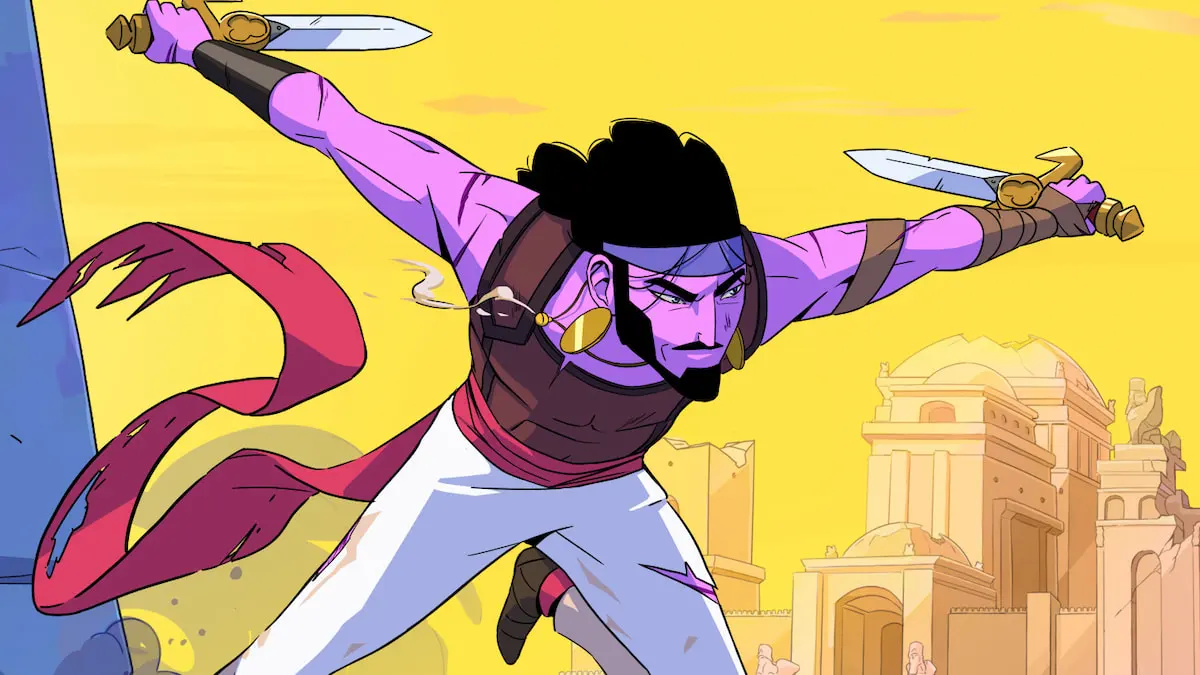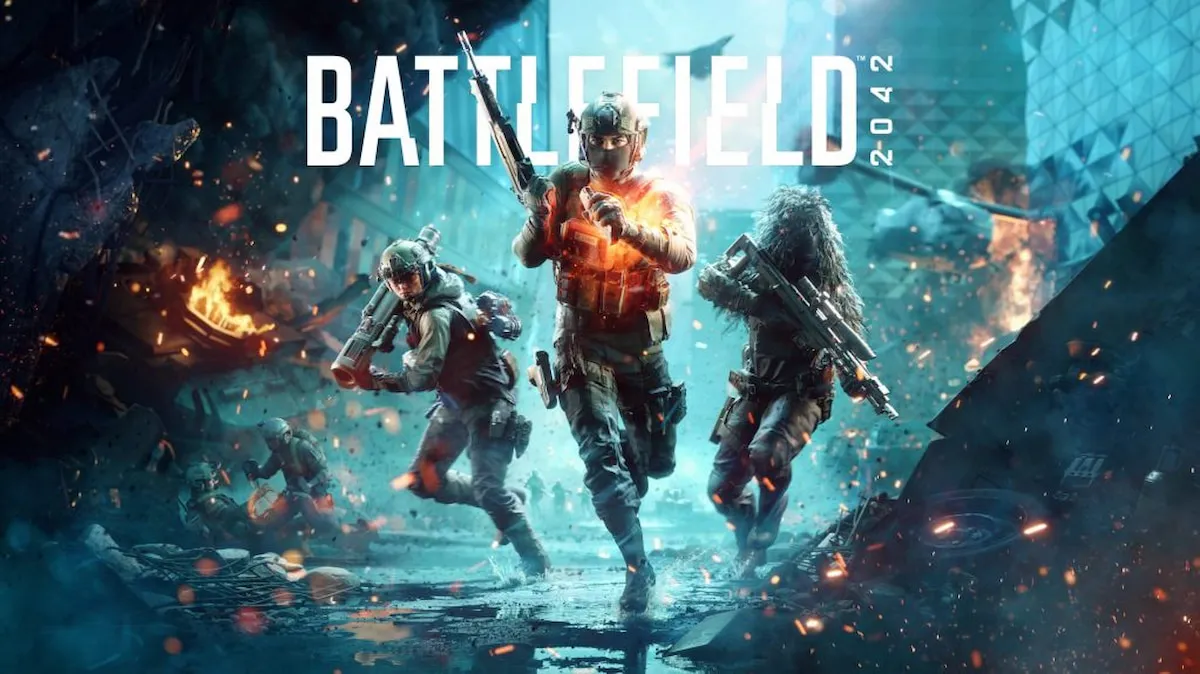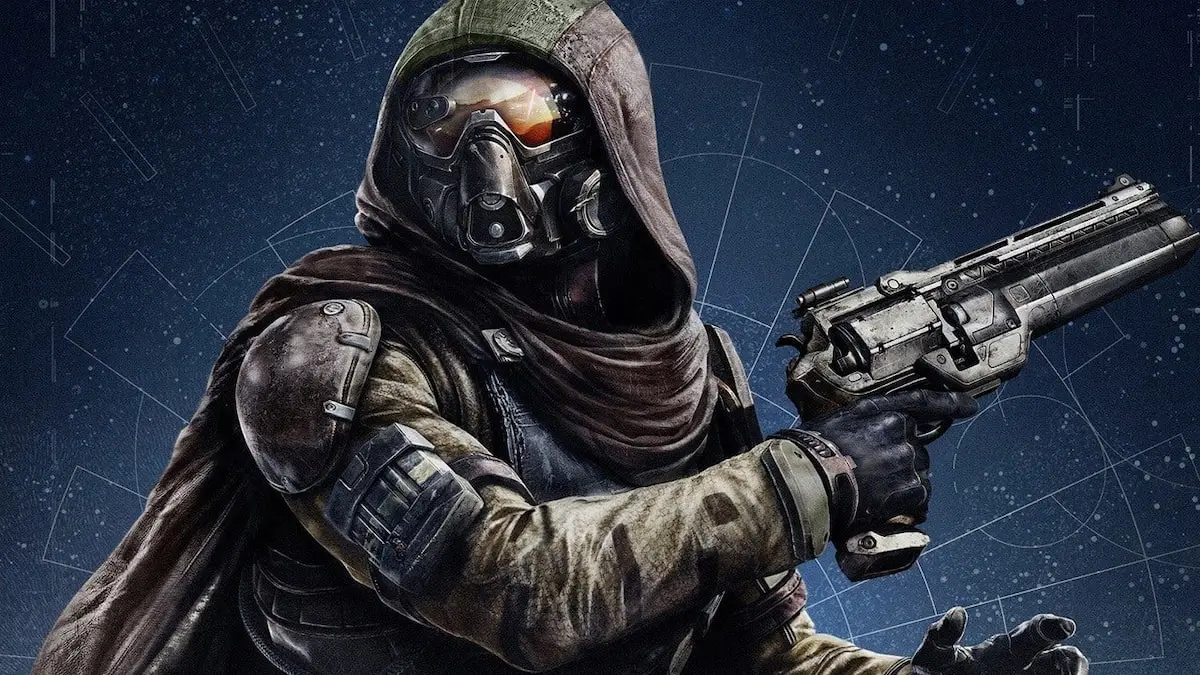Kim Swift sprang to fame as the project lead on Valve’s wonderful first-person puzzler, Portal. It was a game that managed to be brilliantly clever, incredibly funny, and yet accessible to a wider gaming audience. It’s with this philosophy that Swift begins her new job heading up a team at Airtight Games. We took this chance to look back over the path that took her here, beginning with the game that inspired Portal, Narbacular Drop.
Kim Swift Eurogamer Hello.
Hi!
Do you feel old enough to be a part of Retro Sunday?
Not particularly. Would you say I’m old enough?
No. I definitely would not. Because I’m significantly older than you, and thus would make myself feel incredibly old. Rather than out of manners. So let’s go back. Way back. To before Narbacular Drop. How did you end up at MIT?
You mean DIT right?
Well, that would make more sense.
DigiPen does not equal MIT. Notice the lack of the M in DigiPen.
Yes, I am bad with acronyms.
Is this your own personal achilles heel?
Yes. It’s the only way they’ll eventually be able to kill me.
Oh, then perhaps you shouldn’t advertise that.
So, hey, how did you end up at DIT?
Well, I was in my Junior year of high school and I knew that I really wanted to make videogames. And completely had no clue how they were made or even where to start. I was talking to my Dad about possibly going into a Computer Science programme somewhere so I could maybe break into the games industry one day. He had heard about DigiPen from a coworker and suggested I apply there.
Are they tough to get into?
Well, for the RTIS program – Real Time Interactive Simulation, DigiPen’s name for a CS degree with a specialisation in computer graphics – they require that you have a good foundation in math and sciences. The curriculum is definitely tough and extremely fast-paced. I took a couple of community college C++ courses in high school and what I learned in those two semesters were surpassed in about a couple weeks at DigiPen.
Impressive. So were you already fiddling with game ideas at this point?
Not particularly, I was mainly trying to keep my head above water really with all of the school work. I had a few ideas here and there though. Whenever our games team would start to figure out what we were going to do for our project, we would all pitch in various ideas. So I suppose that’s something to clarify. At DigiPen, each year we have games class where you team up with a few other students in the class and the goal is by the end of two semesters is to have a game. Every year the requirements are different. First year was a text-based game. Then second year is 2D. Third year required networking and 3D. Fourth year was physics and 3D.
What did you make for a text game?
Let’s see, so I was on a team with a couple of the people that were on Portal, Jeep [Barnett] and Garret [Rickey]. And a few other folks. We made a game called Invasion Squad XIV. It was a turn-based strategy game.
I always thought that was the best in the series. I hated Invasion Squad VIII.
Yeah, well you didn’t have the giant ion cannon in that one.
Exactly. So turn-based text. That must have made moving the units tricky. Or was this something Rogue-like?
I did quite a bit of text-based artwork for the game, and I had to actually resurrect those skills for the credits sequence of Portal. Wow, that totally didn’t answer your question…
It’s okay, don’t mind me.
Basically you’re in control of a space ship. So each turn you get to decide what you plan on doing in the space ship. The premise is that you’ve come in contact with Earth and you’re trying to figure out what to do with it. So in a turn, you could send units down to explore a particular area, or maybe get the engineering team to build a weapon on the ship. The most fun outcome of the game is to just blow up things with an ion cannon.
Well we were learning game history at the time to as well, one of the first games we had to play in our games class was Zork.
That’s good to know.
But mainly it’s there to help get your feet wet. When I was going to school there we weren’t allowed to use any other engines like say Source or Unreal Engine. So we had to build our own engines and heading right into DigiPen we didn’t know how to use Direct3D straight off. So text-based was a good place to start.
Makes sense. So three of your team were already together. Did you stick with each other for the rest of the years?
Jeep, Garret and I stuck together and then Dave [Kircher] joined in a couple years later. Then the artists, Realm [Lovejoy], Paul [Graham] and Scott [Kintworth] didn’t join until our Senior year. And that’s the whole Narbacular Drop team that eventually went on to Valve.
So it’s the fourth year, and you’re doing 3D and physics. Has anyone already had the idea for Narbacular Drop?
The idea for Narbacular Drop started the summer before Senior year [that’s the fourth year – Ed]. We decided that we wanted to get a jump-start on the game and actually have a good plan in place for once.
So what was the original seed behind the game? It’s tempting to assume it was the portal. Did that come first?
Yeah, pretty much. Dave had been working on the idea of having these portals you could look in and see out the other. And we all pitched in to try to find a good way to use them. Having the game be an environmental puzzler was somewhat of a mash-up of a couple game proposals.
Do you remember what they were?
Honestly, not really. I know I proposed some sort of puzzle game with fish.
Do you still resent the lack of fish in the finished game?
Not really, we had Lava Turtles. That was way better.
Have you played Narbacular recently?
It’s been awhile. I think the last time I played was when I was getting screenshots for a GDC presentation a few years ago.
What do you think of it now when you look back?
Wow, it’s very brown.
That must be how John Carmack feels all the time.
Nah, more like I’ve learned so much since school. And certainly giant heaping piles of gratitude. And the brown thing too.
I remember the first time I saw it. A colleague from a rival publication showed it to me, excitedly. “Look! Look at this!” and then played with infinitely looping portals. It was a moment of: “Oh yeah! That should have existed since the beginning of time.”
Too bad they don’t actually exist in real life.
Yeah. This is technology someone should be working on. Although I know for sure I’d permanently be throwing the wrong portal and getting myself stuck in small rooms.
Or getting extremely motion sick.
So, then came that magical moment.
Yep, us coming to Valve.
What was your plan before that job offer?
Well I was interviewing and hoping I might get a job with Crystal Dynamics actually. So basically looking for a job.
And why didn’t that happen?
DigiPen holds an expo for game developers to come in and check out the work of graduating seniors. So Valve sends over a couple people to take a look. Robin Walker actually was the one who talked to us. First he proceeded to tell us everything we did wrong. He also commented that the game was very brown. And after we were sufficiently pulverised, he gives us his card and says good work, and stay in touch.
Well, a few days later Garret decides to email him with the pretence of asking what we could do to make the game better – we were going to take the game to GDC the following year for Student Showcase. We thought maybe we could brush up the game a bit more before we submit it. We then get an invite to come and demo the game at Valve. So we of course jump at the opportunity, all the while thinking: “Wow, these guys are really nice to give us feedback on our game in person.”
It’s the sort of thing they do.
We go there and Robin greets us and sticks us in a conference room and lets us set up the game. We were thinking maybe, one or two people would show up to take a look. Slowly but surely, the room starts to really fill up with people. The couch of course fills up first. After the room gets pretty packed and Robin comes back, then walks in Gabe Newell. He immediately goes to the couch and people get up to clear a space for him. We decide I’d do the talking in the presentation while Jeep plays the game to demonstrate. After about 10-15 minutes through the presentation Gabe stops us and asks what we’re planning on doing after graduation. I reply that we’re looking for jobs, or something of that sort. Shortly after that we find ourselves in another conference room sitting across the table from Gabe. He then on the spot asks us if we’d want to be hired to re-create our student project using Source.
You must have all stared at each other in shock for a bit.
Well yeah, we were all just completely stunned. We thought we were just going in to get feedback on our game and a tour of Valve. We didn’t really expect to walk out the door with a job.
So Portal’s a pretty different game than Narbacular Drop. How much of where it ended up going came from you guys as a team, and how much came from the influence of Valve?
Well, we definitely learned quite a bit from Valve about their design process. The most valuable thing I and I’m pretty sure everyone else learned was to playtest and iterate. If a player doesn’t know what to do, it’s the game developer’s fault, not the player. And obviously, we were happy to insert Portal into the Half-Life fiction. Everything else was all us though, we had a few mentors that we would refer to in order to get help, and of course Eric Wolpaw joined our team. But all of the blood, sweat and tears came out of us Narbacular Drop folk.
Do you secretly call it “Narbacular Drop II”?
Uh, no.
You could maybe start doing that.
That’s a bit wordier than Portal. Not to mention, no one knows how to pronounce Narbacular. Nar-back-u-laar.
I was right!
You deserve a cookie.
The level design in Portal is extraordinary. The level design in Narbacular… um, I don’t want to be rude. It’s not quite as good.
Yes, well there’s a big difference in having to create a game while you’re going to school and having to actually pass other courses. And then having 8-10 hours a day to work on a game. And get paid for it.
This line of questioning becomes complimentary eventually. The level design in Portal really is exemplary. How did you reach that height?
Design-Test-Iterate, Design-Test-Iterate, Design-Test-Iterate. People really underestimate watching people test the game. It very quickly proves or disproves theories, it keeps everyone on the same page since everyone is watching the same thing happen, and it helps to keep people objective. In fact, quite a few of the levels came out of watching people playtest and observing particular behaviours.
So we had a room where we wanted to teach players to put a box on a button. The button was arranged to open a door at the far side of the room when held down. Rather than finding the box though (which was in a pit over to the side of the room), players were standing on the button and shooting a portal through the now open door. So to fix that we put up a glass barrier in between the button and the door. But we also took the behaviour of holding down a button with your own weight and shooting a portal through the open door and incorporated it into other levels.
It makes sense to approach things this way. Players always find exploits. So figure out what some of them will be. Clever. You must feel a lot of pride when you look at Portal.
Of course, it was our baby. That people actually ended up liking. Our baby became the popular kid in school.
And now as the decade comes to an end, it’s starting to show up in Best Of The Decade lists. How does that make you feel?
Pretty blown away and amazed. It definitely gives me a warm, fuzzy feeling.
So you’re now settling in at Airtight, starting off new secret projects, right?
Yep, sadly nothing I can talk about right now. But I really enjoy working here so far, it’s a pretty small company and at this point I think I’ve met almost everyone. And everyone I’ve met is super-friendly, has a great sense of humour and is really talented.
What I’m interested to learn from you is the philosophies you take with you into this new job. What do you think a game should be?
Fun.
And what makes something fun?
Well, I suppose the word fun is really relative. I think games should be something really entertaining and should make players react in a tangible way. Whether that be anxiety and tension from Shooters, or sorrow from a character dying in an RPG, or a good laugh at an amazing line of dialogue. Games should give players the opportunity to create their own story because those are the sorts of experiences that they’re going to really remember. When people talk about games to other people they talk about what they did or what they played through, not the cut-scene that they idly watched. It’s the player’s actions that really count.
You seem to have a lot of respect for the player. Do you think that’s missing in some developers’ minds?
I honestly can’t really say what other developers are or are not thinking, but for me I think creating a good game is all about walking the fine line of being able to convey a particular experience and at the same time giving players the opportunity to create their own.
What do you want to see games do next? What’s the frontier they’ve yet to cross?
Well, I’m definitely looking forward to mainstream games that are more accessible and at the same time have a high quality bar. I personally grew up playing video games with my Dad. It was one of the few times where we could sit down and have a good time together. I want other people to be able to experience that because I found it to be a lot of fun. And as more people that enjoy video games, grow up and have kids, they more than likely want to play games with their kids.
And share those created experiences.
Exactly. And games seem to be split into two categories, either they’re kids’ games and have a low production bar and don’t have a lot there for adults to have fun with. Or they’re a big budget game with a lot of substance but a lot of violence that isn’t appropriate for kids. I think there’s a happy medium in between where there’s a little bit of something for everyone, like a good Pixar film. I definitely hope to try to make games that are more accessible to a broader audience.



